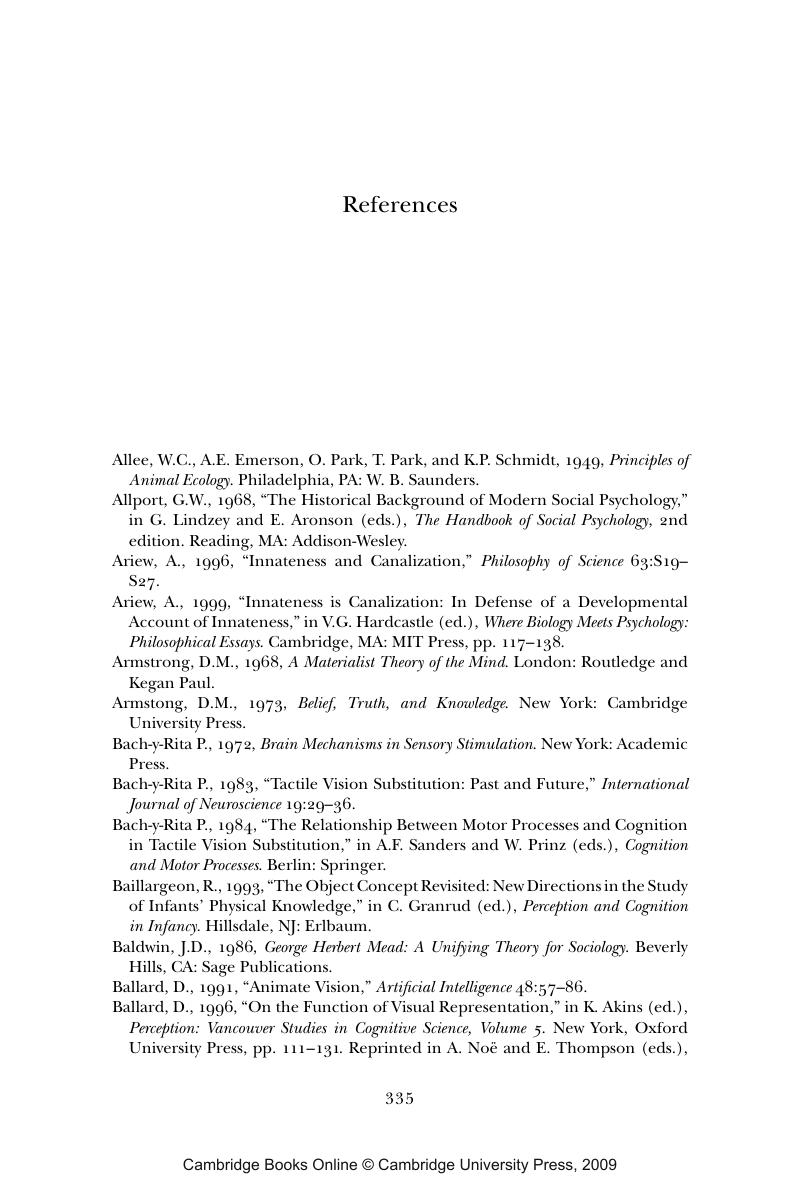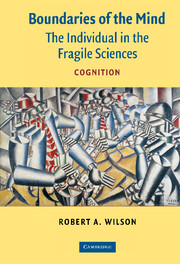Book contents
- Frontmatter
- Contents
- List of Tables and Figures
- Acknowledgments
- Boundaries of the Mind
- PART ONE DISCIPLINING THE INDIVIDUAL AND THE MIND
- PART TWO INDIVIDUALISM AND EXTERNALISM IN THE PHILOSOPHY OF MIND AND THE COGNITIVE SCIENCES
- PART THREE THINKING THROUGH AND BEYOND THE BODY
- PART FOUR THE COGNITIVE METAPHOR IN THE BIOLOGICAL AND SOCIAL SCIENCES
- Notes
- References
- Index
- References
References
Published online by Cambridge University Press: 02 December 2009
- Frontmatter
- Contents
- List of Tables and Figures
- Acknowledgments
- Boundaries of the Mind
- PART ONE DISCIPLINING THE INDIVIDUAL AND THE MIND
- PART TWO INDIVIDUALISM AND EXTERNALISM IN THE PHILOSOPHY OF MIND AND THE COGNITIVE SCIENCES
- PART THREE THINKING THROUGH AND BEYOND THE BODY
- PART FOUR THE COGNITIVE METAPHOR IN THE BIOLOGICAL AND SOCIAL SCIENCES
- Notes
- References
- Index
- References
Summary

- Type
- Chapter
- Information
- Boundaries of the MindThe Individual in the Fragile Sciences - Cognition, pp. 335 - 354Publisher: Cambridge University PressPrint publication year: 2004



